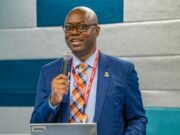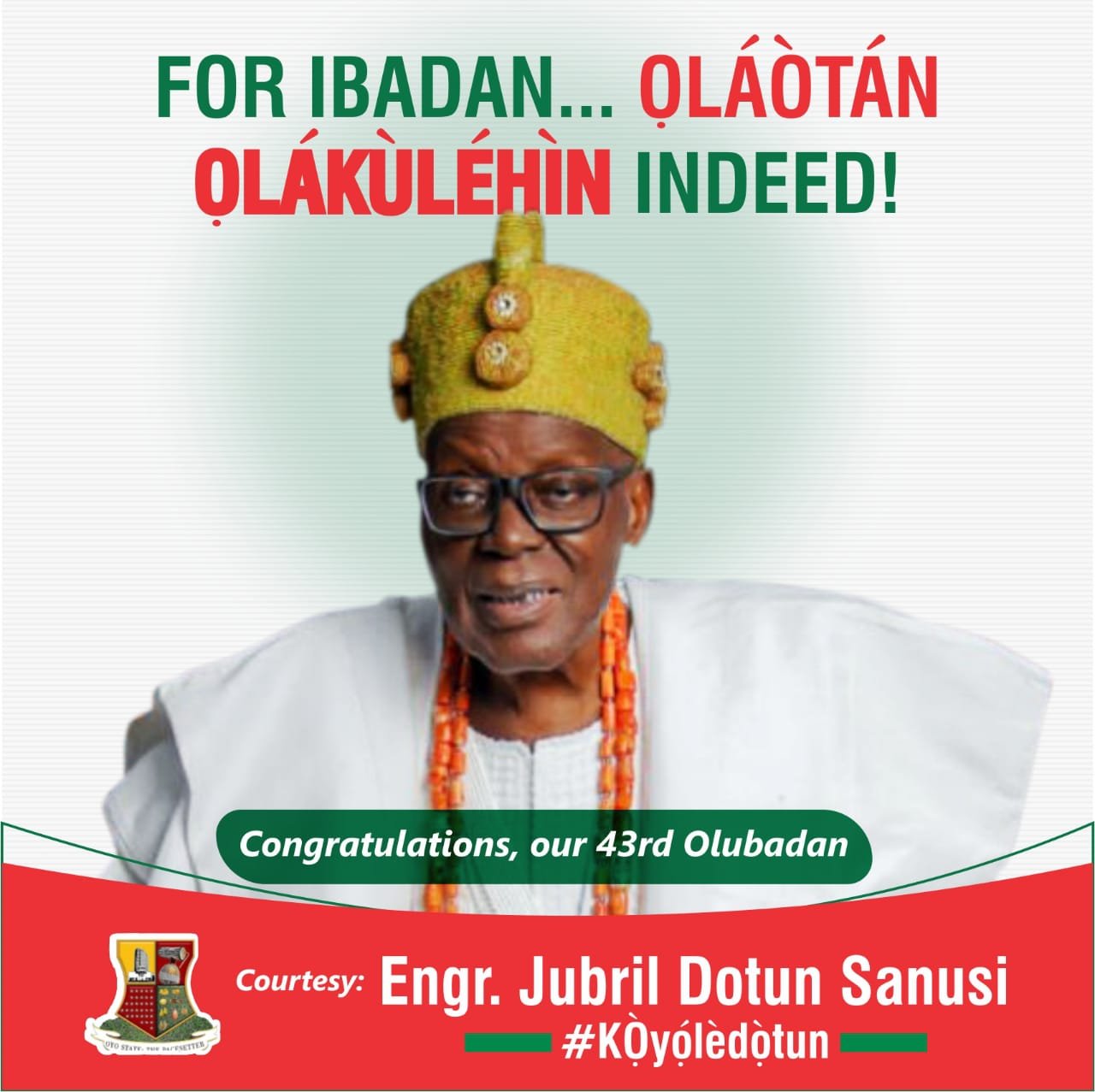When we assert that Africa’s human resources remain expansively wide, we are not making untested or wild claims and unsubstantiated projections. Our conclusion comes from the awareness and examination of the demographic confraternity of individuals who have recorded additions to the various fields and every life spectrum conceivable to humans. Their historical contributions to knowledge production generally are strengthened by the groundbreaking intellectual additions made today by their academic elites. Despite the relatively short period of the coincidence of Western education in Africa, the numbers of individuals known as cornerstones of knowledge systems from Africa keep increasing, making surprising feats that foreground their social significance.

One of the individuals in this category is Paul Tiyambe Zeleza, an African egghead, born on the 25th of May, 1955, into a Malawian family in Salisbury, Rhodesia, now Harare, Zimbabwe. Zeleza has a career in different academic disciplines, and he has dignified himself as a renowned historian, developmentalist, and policy analyst. Although the areas of his intellectual contributions transcend these disciplines, he has, however, made intimidating contributions in these three fields. And because the perception and principle of analysis differ substantially, he has succeeded in attracting the scholarly and political attention of his immediate environment and the world.

He is currently an academic-political office occupant, where he uses his intellectual capacity to manage their activities and engagements administratively. Still, before we say one or two things about these positions, we find it intellectually stimulating to consider a few of his contributions to African and global knowledge production. To demonstrate his analytical understanding of contemporary global events, Zeleza, in one of his recent articles, “Trump Fired, Biden Hired: America’s Democratic Reawakening,” he highlights the dramatic underpinning consequences of the repressive democracy that the world generally experienced under the leadership of a psychologically tormented American President, Donald Trump, who, not being able to understand how to integrate himself into a world without having power, became dictatorial and hacked the age-long American democracy that has been the model for many countries before his ascension. Zeleza argued that, contrary to the misconception that the American democracy is perfect and without blemishes, every governance philosophy usually has its weakness that, when exploited, would take on a different look to anyone who has before then ranked it as the best. Thus, he continued that the hero status that the world conscientiously ascribes to the country comes from the absence of leadership like Trump’s, who has demystified the untested hypothesis that hitherto was shared about his country.
Beyond this, however, the intellectualism of Zeleza is flung open when he dived into the economic populism that has risen to the emergence of someone like Trump. He thinks that the American economy had been a carpet layer that veiled American civilization’s hideous history. Their Achilles Heel is the election of Donald Trump, a moral outcast whose level of political indiscretion, and indirection too, was incubated each year until the elastic limit that was reached a few months before the recent election unseated him. He contends, therefore, that the American populace is insulated from the harsh realities of their intrusive policies, which have prevented a lot of countries from reaching their fullest potential. Because of this isolated situation, they are disconnected from the reality that the world is only struggling to contain their excess. Even when it appears that they are equally appalled by the flagrancy of his boorish political culture, the world, in sarcasm, considers Trump as the proverbial karma that has come to give America the taste of what it represents to others from a distant past to the contemporary present. Even though the wreck an individual can cause when empowered cannot be understated, the erection of strong institutions that check their excess makes American democracy a truly model one. To understand how the larger percentage of the American populace elects to displace him from office is to consider their institutions’ formidability in the grand scheme of things.
The intellectual avatar demonstrated his knowledge of the economy when he gave a keynote address on “Beyond Political Freedom to Inclusive Wealth Creation and Self-reliance” at the official opening of the 1st National Development Conference presided by the President of Malawi, His Excellency Dr. Lazarus Chakwera, on 27 August 2020. In his address, he delves into the relationship between political freedom and generating wealth for the people. The former is considered a necessary framework for the restoration of an essential atmosphere conducive to an economic transformation where people would be lifted from their not-too-good financial situations. He believes that the economic conditions of their country, Malawi, do not necessarily reflect the absence of strategic plans and informed policies, as they have not only had a series of academic symposia where the possible financial solutions to the ravaging economic problems would be solved, but they have equally produced very vibrant minds who have risen to the peak of their career and have gone to become notable economists in the world record. He stresses, however, that the progressive downturn of their economic and financial conditions can be associated with their inconsistency in the management of economic excellence, which can be translated into concrete results. One cannot but concede to the argument that people’s financial conditions cannot be stable when there is no sustainability plan.

Whereas unknown factors do not inspire the perpetual declination in the economic sector, Zeleza notes that the constant instability of the people’s economic systems is underscored by their regressive performance in crucial sectors that determine the functionality of the economic system of the country. For example, when the people’s agricultural sector, their industry, and services are not operating to the maximum, it would have unbearable consequences on their economic growth. He is, however, pragmatic when he asserts that once the issues that are stemming the progress of the people are identified, the required solutions to the problem cannot, therefore, be said to be elusive. One of the prescribed answers to the issues that confront them at the economic front was to pump their investment into the agricultural sector so that their farm output would combine to reinvigorate their dying economic system. To do this, they needed to give impetus to the diversification of their agricultural engagements by looking beyond the concentration on maize production, improving the market culture, and enhancing better mobility. Therefore, this would reincarnate their industry sector as individuals that have been hitherto unengaged would find work, which would also contribute to increased services in the country. All these show someone who understands the trajectory of politics in Africa.
Zeleza’s contributions to education is also top-notch. Whenever he addresses issues, they usually have global significance because he uses an eclectic approach in examining whatever factors that have a relationship with knowledge generation. For instance, in The Transformation of Global Higher Education, 1945-2015, produced in 2016, he reflects on the explosion of academic institutions in the global community in recent times. While anyone would have agreed that the education sector of the world increased in numerical representation from the time that he pegged his research around, they probably may not have the analytical awareness to project the reasons for such improvement; ensuing challenges and the probable solutions that can be offered for the seemingly obstinate confrontation appears hard to crack. Through the intellectual insight of Zeleza, we are aware that the explosion in the number of schools, among higher institutions especially, is not because of the demographic increase that is recorded in recent history. It is because of the high pressure that comes with social changes inspired by human resources development. When more individuals are added to the number, there is always some pressure that forces people into thinking creatively on how to face challenges, and because the world has shifted to accept these changes, the explosion of schools became more inevitable.
In this condition, leaving the creation of higher institutions into the exclusive terrain of the government would probably produce undesirable results. As such, individual organizations and interest rose to the occasion by investing heavily into creating schools, institutes, and research centers that would be equipped with never-ending human and financial resources that would, therefore, embark on the project for the redefinition of human purpose generally. The demographic increase comes with the hunger for widespread information dissemination because knowledge production is at an all-time high. In essence, the creativity to respond to these civilizational challenges lies not exclusively in the government’s hands but for various individuals who can come up to make meaningful and significant changes through their contributions and resolve. Because of this condition, localizing educational systems would be detrimental to our collective goals. This pushed Zeleza to propose the internalization of knowledge production. This has the potential capacity to unify intellections, quality thinking, better analytical awareness for the enhancement of global advancement. The academic egghead hints that the situation has, in the process, brought about competition and access, affordability and relevance to educational systems of the world generally. The book clearly defines what education systems would continue to be in the continually evolving world.

One cannot but be stunned by the vastness of the said intellectual, especially when one further appreciates his invaluable contributions to knowledge systems globally. In another experience, Zeleza dives into transcontinental politics where he x-rayed the Diaspora Africans’ affairs whose situations and conditions are continually defined by different factors, systems, and political infrastructure that does not consider their well-being as a primary concern. Therefore, in his In Search of African Diasporas: Testimonies and Encounters, we are treated to the fecundity of this man’s intellectualism where he discussed the travails and tragedies confronting the diaspora Africans in their various countries and places of residence outside of Africa. Generally, these people’s conditions are usually dictated by a history of racial denigration and prejudices that, first among other things, informed the enslavement of the people to work as an instrument of economic transformation of the Americas through their sugarcane plantations in previous centuries. Because these treatments have dotted their identity, they faced very consuming challenges in different places, reacted where necessary, and resisted constraints that force them within sociopolitical and economic limitations. The book exposes the Africans’ experience in these various countries: Latin America to the Caribbean, Europe, and Asia, and the places where they have registered their presence through their sojourn.
Although his sojourn inspired the book into the diaspora, the author’s experience is an expanding source of inspiration and information for the most precise pictures he paints about Africans’ diaspora life. Irrespective of the societies where they found themselves, some things define their experience. These range from racial prejudice, political subjugation, core social segregation, and a mélange of other deprecatory challenges. Therefore, the politics of exclusion in these countries have rendered the Africans vulnerable to economic and financial issues that combine to enervate their efforts and emasculate their resolve. Although there are testimonies in some environments evidenced by the relative transformation of the lives of migrants and the enslaved Africans who have spent years in the New World, the fact that challenges consume them cannot be overshadowed by the little progress they have made. Despite their relatively minimal progress, however, the author admits that there are assurances of increased and improved development because these Africans in diaspora communities continue to make their presence felt through their contributions in different areas. Instructively, the destiny of in-house Africans is somewhat tied to the progress which the diaspora community records. As long as they continue to define their status in the diaspora environment, they have influenced Africans’ progress.
Zeleza also made numerous contributions to different works through various means of engagement. There are many books where he (co)edited that we intend to look into there. One that suits the context of exploration is The Resolution of African Conflicts: The Management of Conflict Resolution and Post-Conflict Reconstruction, where he jointly gives the analytical skill to security issues confronting the many African nations. The book is an indictment of the Western perspectivists whose position about Africans is usually affected by their established condescension. The Global North, looking at the degree of economic sabotage perpetrated against the many African countries, is always asserting that the continent cannot eliminate altercations and controversies that could quickly spring up the conflict from time to time. This racist conclusion, the book reveals, has no basis in the intellectual consideration of events as they are motivated by emotions and Universalist agenda than being genuinely objective. Sequel to this awful situation, the book rejects the Westerners’ overindulgence and establishes the priority of African thinking in the process of finding solutions to their existential challenges. The postcolonial African condition creates the atmosphere for conflict because the aftermath of the people’s European domination cannot be divorced from the reality of economic and political exploitation that have dredged out the people’s human and natural resources in the past.

One cannot but say at this point that mentioning all the contributions of Zeleza within this relatively limited intellectual discussion is impossible. He is indisputably outstanding in his ability to analyze events. In another of his work where he addresses globalization about making necessary changes in Africa, Zeleza takes us through the genealogy of every event that shapes the current African political trajectory. In the work, titled Rethinking Africa’s Globalization: The Intellectual Challenge, there is an extensive interrogation of the myths surrounding civilization and globalization. We understand that while globalization’s promise is entirely intimidating, it comes with some definable challenges because the concession of globalization means some activities would emerge simultaneously that would stretch the people and force their traditional thinking to change. In a globalized world, the African contribution would be encouraged, which means cross-continent intellectual exchange cannot be undermined. As the cornerstone of the people’s academic culture, the university would have been overwhelmed by the pressure to revolutionize their thought system, which is expected to produce quality ideology in maintaining their position. Therefore, there would be the need to reflect on African development and democracy and how they can bring about the expected or imagined future.
There are many other areas where the contributions of Zeleza have continued to penetrate the crucible of their knowledge systems but are not touched here because of the limited time and space. His is vast and very influential. In recognition of his selfless efforts to expand human knowledge systems generally, different organizations have accorded him the befitting honor that people of his intellectual stature deserve. We would delay mentioning a few of his honorary awards and make some passing remarks about his intellectual strength’s profundity, and credibility. Having bagged his Ph.D. from the Dalhousie University, his MA from the University of London, and his Bachelor of Arts from the University of Malawi, it has been the common concern of Zeleza to function in different academic positions and in leadership roles where he believes he could offer both his intellectual and professional services for the advancement of humanity and their endeavors. Adding truth to this, he has occupied a series of career and political offices within the relatively short period of his ascension into academic stardom. He is Vice-Chancellor, Professor of the Humanities and Social Sciences, United States International University: Africa from 2016 till date, Vice-President, Academic Affairs at Quinnipiac University 2013–15, Dean of the Bellarmine College of Liberal Arts at Loyola Marymount University 2009–13, etc.
It is interesting to note that this same scholar has been recognized with awards of excellence that complement his hard work and efforts in the various fields where he has found the privilege to function. The Choice Outstanding Academic Title 2003, Penn State College of Liberal Arts Class of 1933, and Distinction in the Humanities Award 2006 are some of the awards to which Zeleza has been associated. Beyond this, he has attracted various grants from different organizations, which help consolidate his learning engagement and relieve him of the financial pressure that might have surfaced on different occasions. Ford Foundation, Rockefeller Foundation, Carnegie Corporation of New York, Friedrich Ebert Foundation, among others, are a few of these establishments that have felt the significance of his contribution to human knowledge systems. It is undeniable that what he has added to global knowledge cannot be undermined. More compelling is that he has constructed a posture that can withstand different challenges in the present and future conditions.













































